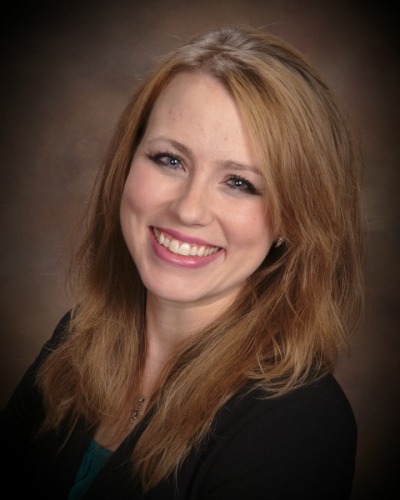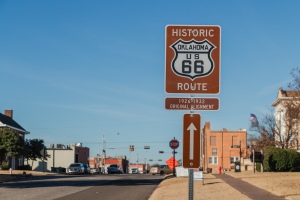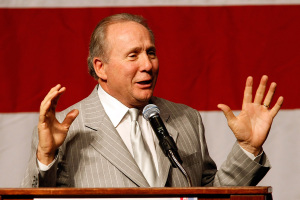5 Questions to Ask About the Refugee Crisis

I know I'm not the only one whose Facebook page has been blowing up with various opinions and strategies concerning the Syrian refugees and their relation to American national security. I've admired my friends who've brought up the issue with wisdom and a listening heart — no matter what side they've come down on.
After sitting on the sidelines for a couple days, here's my take on five things to ask ourselves:
1) Is it really us vs. them?
Let's remember: we're not fighting a war against refugees. Of course, the people who are opposed to refugees flooding the U.S. aren't by and large saying the refugees are the problem, because they're not. Americans are not opposed to refugees … many of us are the children and grandchildren of refugees, and America is the land that welcomes refugees with freedom's torch.
However, speaking from a national security standpoint, it is us vs. them when it comes to ISIS. And ISIS claims they hide their terrorists in the midst of refugees, help them masquerade as legitimate refugees, and teach them to infiltrate countries like France and the U.S.
So while it's not us vs. them with the refugees, we do have to use wisdom to determine who is a real refugee and who is a concealed terrorist. Until that ability has been developed and perfected, should we open our own children and neighbors to terrorists? It's one thing to be willing to lay down our own lives; it's another entirely to lay down the lives of our children and neighbors.
2) Why aren't we talking about more than just the Syrian refugees?
While recent media, graphic photos, and heartbreaking stories have forced us to face the realities of the Syrian refugees, why aren't we equally talking about the Burmese, Somali, and Sudanese refugees? People in those nations have also been targeted by militant, viciously violent groups. Some of them have been in unsanitary, dangerous refugee camps for decades.
Where is the call to up the U.S. refugee quota for them? If we are pro-refugee, let's truly be pro-refugee.
3) Aren't there more than just two answers?
One of the saddest outcomes of the current argument is that many are failing to see more than two answers. And yet the choices are not A) let all Syrian refugees — terrorists included — into the U.S. or B) keep all Syrian refugees — targets of genocide included — out. We love to simplify things and accuse our "opponents" of being extreme, and yet it's probably true that many of us have more nuanced, reasonable views.
For example, is anyone really calling for us to leave the refugees completely without help? Is calling for proper vetting really unreasonable? The clear purpose of developing a system of vetting is to learn how to let the real refugees in. I think we could confidently say that most Americans want to accept and welcome true refugees.
Beyond the A) and B) answers above, there are other creative options. We could create no-fly zones above refugee camps, direct foreign aid dollars to international aid organizations in the camps, make the camps livable, safe, and sanitary, and we could each personally donate funds to groups like Samaritan's Purse who provides food, medical care, and the love of Christ to anyone fleeing the region — refugees, terrorists, and victims of genocide alike.
4) Is there a separate answer for the victims of genocide?
We want to save as many people as we can, and this is good. Yet this is also why, instead of saying we must either accept all or none, we should consider a reasonable, compromised position. Unlike the recent claims of our president, allowing Christian Syrians to come to the U.S. is not imposing a "religious test" on refugees.
If we were to allow Christians and Yazidis to come to the U.S. until we could develop a proper vetting system for Muslims, we would be rescuing the clear victims of genocide. While ISIS is absolutely killing some Muslims as well, the international community knows without a doubt that they are targeting Christians and Yazidis simply because they are Christians and Yazidis. This is called genocide. (Sadly, while it is equally wrong, the targeting of fellow Muslims probably does not fall under the international definition of genocide.)
A compassionate nation should open its arms to the clear victims of genocide — no matter their religion. The religion is not the test; the genocide is. If our officials can find a way to confirm that certain refugees are Christians or Yazidis they should be allowed in. They are not terrorists, and they are victims of a clear, definable genocide.
5) Was "love your enemies" directed to the government?
This wonderful verse of Scripture has been quoted time and again in recent days. And while I 100% believe in its application to us as individual Christians, we would do well to remember that "love your enemies" is not a Biblical command to a government. The duty of a government is first, to protect its own people. That is why our government must ensure that the refugees we accept are not a danger to our own people.
Yet the beauty of "love your enemies" does call each of us to personal action. Are we praying for the salvation of the terrorists and of ISIS — in addition to their victims? Are we donating to organizations like Pastor Michael Youssef's that evangelize Muslims, preventing them from becoming terrorists in the first place? Are we giving up our weekly fast food or our daily coffee to send money to Samaritan's Purse, which is ministering to all refugees — friends and terrorist sympathizers alike?
Perhaps the best action we can currently take is to ask this: "How can I love my enemies? How can I care for the oppressed?" And rather than merely demanding our government to have a certain policy, let us take the hard, practical, daily action of sacrificing time and dollars to answer these questions on a personal level.



























